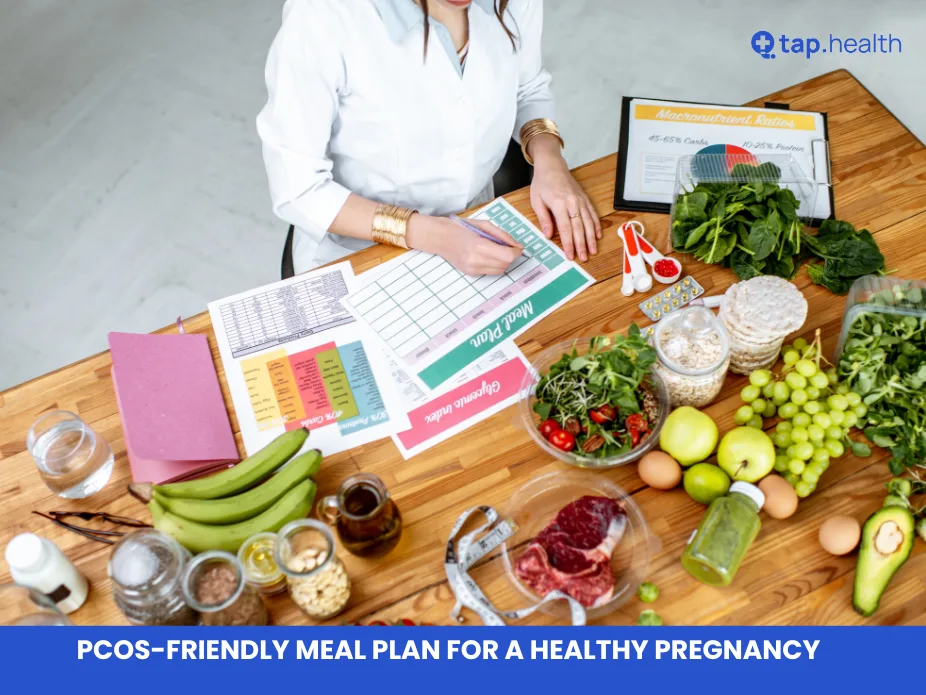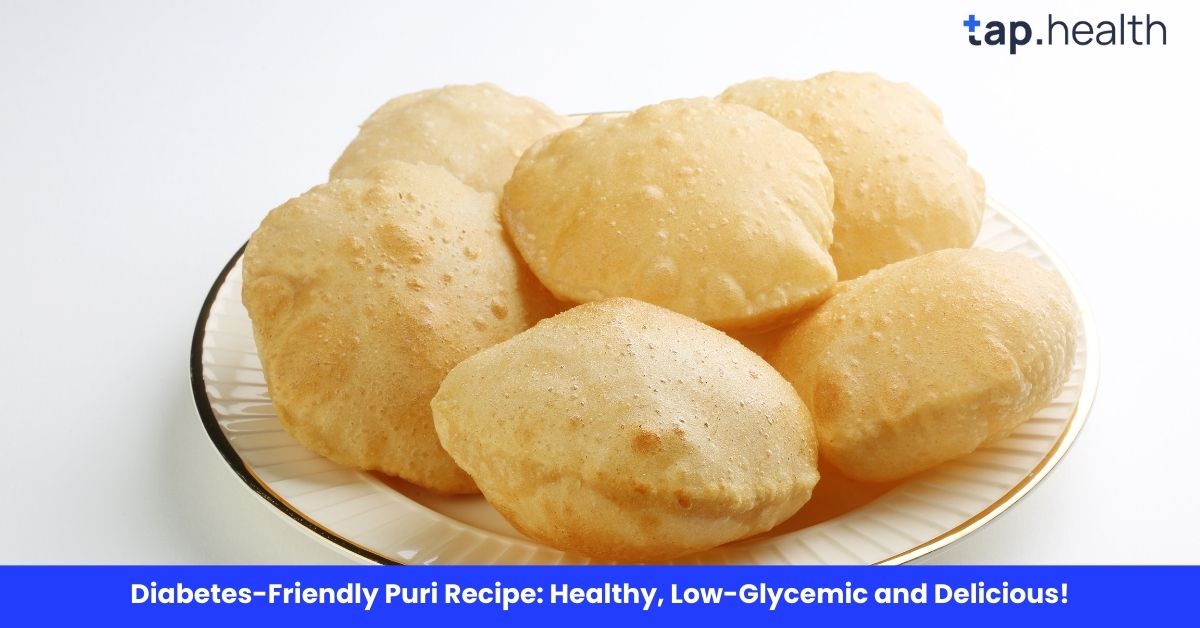Pregnancy is a beautiful journey, but for women with Polycystic Ovary Syndrome (PCOS), it can come with unique challenges. PCOS is a hormonal imbalance that affects many aspects of a woman’s reproductive health, metabolism, and even her pregnancy experience. Women with PCOS often struggle with insulin resistance, weight gain, and blood sugar imbalances, all of which can make pregnancy management a bit more complex.
However, a well-structured PCOS-friendly meal plan can help manage these issues, support a healthy pregnancy, and provide the nutrients necessary for both the mother and baby. In this blog post, we’ll outline a 7-day PCOS-friendly meal plan, share helpful tips on what to eat, and discuss why these foods are beneficial for managing PCOS during pregnancy.
Why a PCOS-Friendly Diet is Important During Pregnancy
For women with PCOS, the body often struggles with regulating blood sugar levels, which can lead to insulin resistance. During pregnancy, this can increase the risk of developing gestational diabetes, a condition where blood sugar levels become too high and require special management. Additionally, maintaining a healthy weight and managing hormone levels are crucial during pregnancy to ensure the health of both mother and baby.
A PCOS-friendly diet focuses on foods that help stabilize blood sugar levels, reduce inflammation, and promote healthy weight gain. The right diet can help reduce the symptoms of PCOS, improve hormonal balance, and provide the nutrients necessary for fetal development.
Key Principles of a PCOS-Friendly Meal Plan
Before diving into the meal plan itself, let’s look at some of the key principles that guide a healthy pregnancy diet for women with PCOS:
1. Focus on Low-Glycemic Foods
Foods with a low glycemic index (GI) help regulate blood sugar levels by releasing sugar into the bloodstream more slowly. This is particularly important for women with PCOS, as they often struggle with insulin resistance. Foods like whole grains, vegetables, and legumes are excellent sources of low-GI carbohydrates.
2. Include Healthy Fats
Healthy fats are essential for managing inflammation and supporting hormone production. Avocados, nuts, seeds, and fatty fish like salmon provide essential omega-3 fatty acids that are beneficial for both the mother’s health and the baby’s brain development.
3. Opt for Lean Proteins
Protein helps to stabilize blood sugar levels and supports healthy growth and development during pregnancy. Lean sources of protein like chicken, turkey, tofu, and legumes are great options. These help you maintain muscle mass, boost metabolism, and prevent excessive weight gain.
4. Incorporate Fiber-Rich Foods
Fiber is important for digestive health and helps stabilize blood sugar levels. Vegetables, fruits, whole grains, and legumes are high in fiber, which also helps to control weight and reduce the risk of gestational diabetes.
5. Limit Processed Foods and Sugars
Women with PCOS should avoid foods that cause rapid spikes in blood sugar levels, like sugary snacks, sweetened beverages, and refined grains. These foods can worsen insulin resistance and increase the risk of complications during pregnancy.
PCOS-Friendly 7-Day Meal Plan for a Healthy Pregnancy
This 7-day meal plan is designed to be nutrient-dense, blood sugar-stabilizing, and PCOS-friendly. It focuses on whole, unprocessed foods and aims to provide balanced meals throughout the day.
Day 1
- Breakfast: Scrambled eggs with spinach and avocado on whole-grain toast
- Eggs are an excellent source of protein, while spinach adds fiber and vitamins. Avocado provides healthy fats to support hormone balance.
- Snack: Greek yogurt with chia seeds and a handful of berries
- Greek yogurt is high in protein, and chia seeds provide fiber and omega-3 fatty acids.
- Lunch: Quinoa salad with grilled chicken, mixed greens, cherry tomatoes, cucumber, and olive oil dressing
- Quinoa is a whole grain with a low glycemic index. Chicken provides lean protein, and olive oil is a heart-healthy fat.
- Snack: A handful of almonds
- Almonds are rich in healthy fats, fiber, and protein, making them a great snack option for blood sugar control.
- Dinner: Grilled salmon with roasted sweet potatoes and steamed broccoli
- Salmon is rich in omega-3 fatty acids, which help reduce inflammation. Sweet potatoes provide fiber, and broccoli is a cruciferous vegetable high in vitamins and minerals.
Day 2
- Breakfast: Oatmeal with flaxseeds, walnuts, and half a banana
- Oats are a whole grain with a low glycemic index. Flaxseeds and walnuts add healthy fats and fiber.
- Snack: A boiled egg and cucumber slices
- Eggs provide protein, while cucumbers are hydrating and low in calories.
- Lunch: Lentil soup with a side of mixed greens salad
- Lentils are high in fiber and protein, which help manage insulin levels.
- Snack: Sliced apple with almond butter
- Apples provide fiber, and almond butter adds healthy fats and protein.
- Dinner: Stir-fry with tofu, bell peppers, zucchini, and brown rice
- Tofu is a great plant-based protein, and brown rice is a whole grain with fiber. The vegetables add fiber and nutrients.
Day 3
- Breakfast: Chia pudding made with almond milk, chia seeds, and berries
- Chia seeds provide omega-3 fatty acids and fiber, and almond milk is a dairy-free alternative with minimal sugar.
- Snack: Carrot sticks with hummus
- Carrots are rich in beta-carotene, and hummus provides protein and healthy fats.
- Lunch: Grilled chicken wrap with whole-wheat tortilla, avocado, and mixed greens
- Whole grains and lean protein help stabilize blood sugar levels, while avocado provides healthy fats.
- Snack: A small handful of mixed nuts (walnuts, almonds, cashews)
- Nuts provide protein, fiber, and healthy fats.
- Dinner: Baked cod with roasted Brussels sprouts and quinoa
- Cod is a lean protein, Brussels sprouts are rich in fiber and vitamins, and quinoa is a whole grain with low GI.
Day 4
- Breakfast: Smoothie with spinach, protein powder, chia seeds, almond milk, and a small apple
- This smoothie provides protein, fiber, healthy fats, and a wide range of nutrients.
- Snack: A small handful of pumpkin seeds
- Pumpkin seeds are rich in magnesium, which helps regulate blood sugar levels.
- Lunch: Chickpea and avocado salad with mixed greens, cucumber, and olive oil dressing
- Chickpeas provide fiber and protein, and avocado adds healthy fats.
- Snack: Sliced bell peppers with guacamole
- Bell peppers are high in vitamin C, and guacamole provides healthy fats and fiber.
- Dinner: Turkey meatballs with zucchini noodles and tomato sauce
- Turkey meatballs provide lean protein, and zucchini noodles are a low-carb, fiber-rich substitute for pasta.
Day 5
- Breakfast: Greek yogurt with sliced strawberries, flaxseeds, and sunflower seeds
- Greek yogurt is high in protein, while flaxseeds and sunflower seeds provide fiber and omega-3 fatty acids.
- Snack: A boiled egg and a handful of cherry tomatoes
- Eggs provide protein, and tomatoes add vitamins and antioxidants.
- Lunch: Tuna salad with mixed greens, olive oil dressing, and a boiled egg
- Tuna is a lean protein source, and eggs provide additional protein and healthy fats.
- Snack: Celery sticks with peanut butter
- Celery is low in calories and high in water content, and peanut butter adds protein and healthy fats.
- Dinner: Grilled shrimp with cauliflower rice and sautéed spinach
- Shrimp provides lean protein, and cauliflower rice is a low-carb, fiber-rich alternative to regular rice.
Day 6
- Breakfast: Avocado toast on whole-grain bread with a poached egg
- Whole grains, healthy fats, and protein make this a balanced breakfast.
- Snack: Sliced cucumber with tzatziki sauce
- Cucumbers are hydrating and low in calories, while tzatziki provides a dose of protein.
- Lunch: Quinoa and black bean bowl with mixed veggies and olive oil dressing
- Quinoa is a whole grain, black beans provide protein and fiber, and veggies are full of vitamins.
- Snack: A small handful of pistachios
- Pistachios provide healthy fats and protein.
- Dinner: Chicken stir-fry with broccoli, bell peppers, and snap peas over brown rice
- Chicken provides lean protein, while vegetables are high in fiber and nutrients.
Day 7
- Breakfast: Scrambled eggs with kale and a side of sliced avocado
- Eggs are a good protein source, while kale and avocado provide vitamins and healthy fats.
- Snack: Greek yogurt with chia seeds and a handful of mixed berries
- Greek yogurt is high in protein, and chia seeds add fiber and omega-3s.
- Lunch: Grilled salmon with a spinach and avocado salad
- Salmon provides omega-3s, and spinach and avocado are nutrient-dense options.
- Snack: Apple slices with almond butter
- Apples are high in fiber, and almond butter provides healthy fats.
- Dinner: Baked chicken breast with roasted sweet potatoes and asparagus
- Chicken provides lean protein, while sweet potatoes and asparagus offer fiber and nutrients.
Expert Contributions: The Role of Diet in Managing PCOS During Pregnancy
Dr. Sarah Johnson, a nutrition expert specializing in PCOS management, emphasizes that “a well-balanced diet is the cornerstone of managing PCOS during pregnancy. Focusing on low-GI foods, healthy fats, and lean proteins can help regulate blood sugar levels, reduce inflammation, and support fetal development.”
She further adds, “Pregnant women with PCOS should work closely with their healthcare provider to tailor a diet plan that meets their specific needs.”
Conclusion
Managing PCOS during pregnancy is vital for both the mother’s and baby’s health. A PCOS-friendly meal plan that focuses on whole grains, lean proteins, healthy fats, and fiber-rich foods can help stabilize blood sugar levels, manage insulin resistance, and promote a healthy pregnancy. By following a balanced, nutrient-dense diet, women with PCOS can optimize their health and reduce the risk of pregnancy complications.
For more information on managing PCOS during pregnancy, visit the PCOS Awareness Association.



